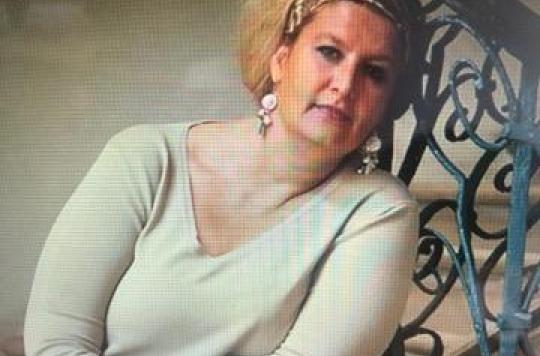On the occasion of World Obesity Day, Anne-Sophie Joly, President of the National Collective of Obese Associations (CNAO), tells us about her fight against the disease.

- Within France, obesity affects nearly 7 million people, or about 15% of the population (it only affected 5.30% of French people in 1981).
– Why doctor – You are 50 years old today. How long have you been obese?
Anne-Sophie Joly I started gaining weight around 16. At the time, I was following a stressful higher education in architecture, where I was often pointed out that I was not in my place, because of my young age. The fact of being a woman, in a very masculine environment, was also often reproached to me. The workload was also very substantial, and the food provided by the convent in which I lived was not very healthy. To manage to work until midnight/1 am, I snacked a lot. I thus regularly increased my clothing size, until I could no longer manage to dress myself in traditional stores. I finished my studies by going to dress at Decathlon, because in Paris, there was only this brand that made large sizes.
– What are the consequences of the disease on your daily life?
They are multiple. Professionally, I have often been discriminated against in hiring because of my weight. On the sentimental level, I had companions who did not assume to go out with me in public, because of my physique. The gaze of people, especially young people in my neighborhood, is also very heavy on a daily basis. In the collective imagination, a person suffering from obesity is necessarily mentally weak, when this is not true. It is even often the opposite, because in the face of adversity, we harden ourselves. Obesity is a daily battle.
– Do you have medical follow-up?
I am surrounded only by doctors: general practitioner, surgeons, gastroenterologists, nutritionists (even if generally, obese people are very knowledgeable about food).
– Have you ever had surgery?
On April 2, 2000, I did what is called a maissone (the ancestor of the sleeve), following which I lost 50 kilos. Unfortunately I had a piece of chicken that got caught in the staples and ripped the top of my stomach off. Two and a half years after the operation, I had a gastric band placed on the first device. There, I still lost 25 kilos, and I stabilized my weight for twelve years. But my breasts having become very hollow, I was fitted with PIP prostheses, which I subsequently had to remove. During the operation, they had to loosen the ring, and I never succeeded in tightening it because of aphagia (inability to swallow). So I regained 50 kilos, and I went back to being obese.
– You are the mother of a little boy. Has your obesity had an impact on your motherhood?
Against all odds, I fell pregnant naturally at 42 years old. I then extremely framed my diet, while doing physical exercise. I managed to lose 12 kilos the first five months of pregnancy, which I then regained.
– Are you satisfied with your treatment in France?
Yes, but I would have liked my first-line consultations with general practitioners to be more benevolent, less guilt-inducing, less discriminating and less centered on pathologies associated with obesity. For example, I have a health professional who advised me to “stop guzzling” to end my ankle pain, even though the problem is much more complex than that. Nobody wants to be obese, it’s not just a problem of willpower.
– Is the origin of obesity just a food problem?
Obesity is multifactorial. For me, for example, its origin is genetic and psychological.
Food also plays an essential role, as does a sedentary lifestyle. With ultra-processed products, we eat much less well today than a century ago, and we also move much less, especially at work. Obese people are victims of our progress.
– Is Covid-19 particularly difficult for someone suffering from obesity?
Absolutely, because people suffering from obesity are more likely to die from Covid-19, or to develop a serious form and complications. 80% of patients who go to intensive care have weight problems. Many people suffering from obesity therefore no longer go out, because they are afraid of the disease. As a result, they isolate themselves, and many are in great psychological distress. Some develop eating disorders; others sometimes even go as far as suicide.
But the Covid-19 has still been, concerning obesity, the revealer of a lot of problems that no one wanted to see so far.
– What do you think of the program “Operation Rebirth”, presented by Karine Le Marchand on M6?
I have a very negative opinion, because it is a grossophobe program, which relies on experts who are not experts. Personally, I never meet them, neither in congresses nor in learned societies and even less in working groups.
The way obesity has been treated by this program does not value therapeutic education in any way, it is pure voyeurism. In addition, the slender image of Karine Le Marchand establishes a non-verbal dialogue with people suffering from obesity who participated in the show. His physique tells them: “You see, you are obese and I am not”. To me, this is an abominable media concept, and I worry about the people who took part in it. Would we do a similar show with someone who has brain cancer or arthritis? I do not think so.

.















